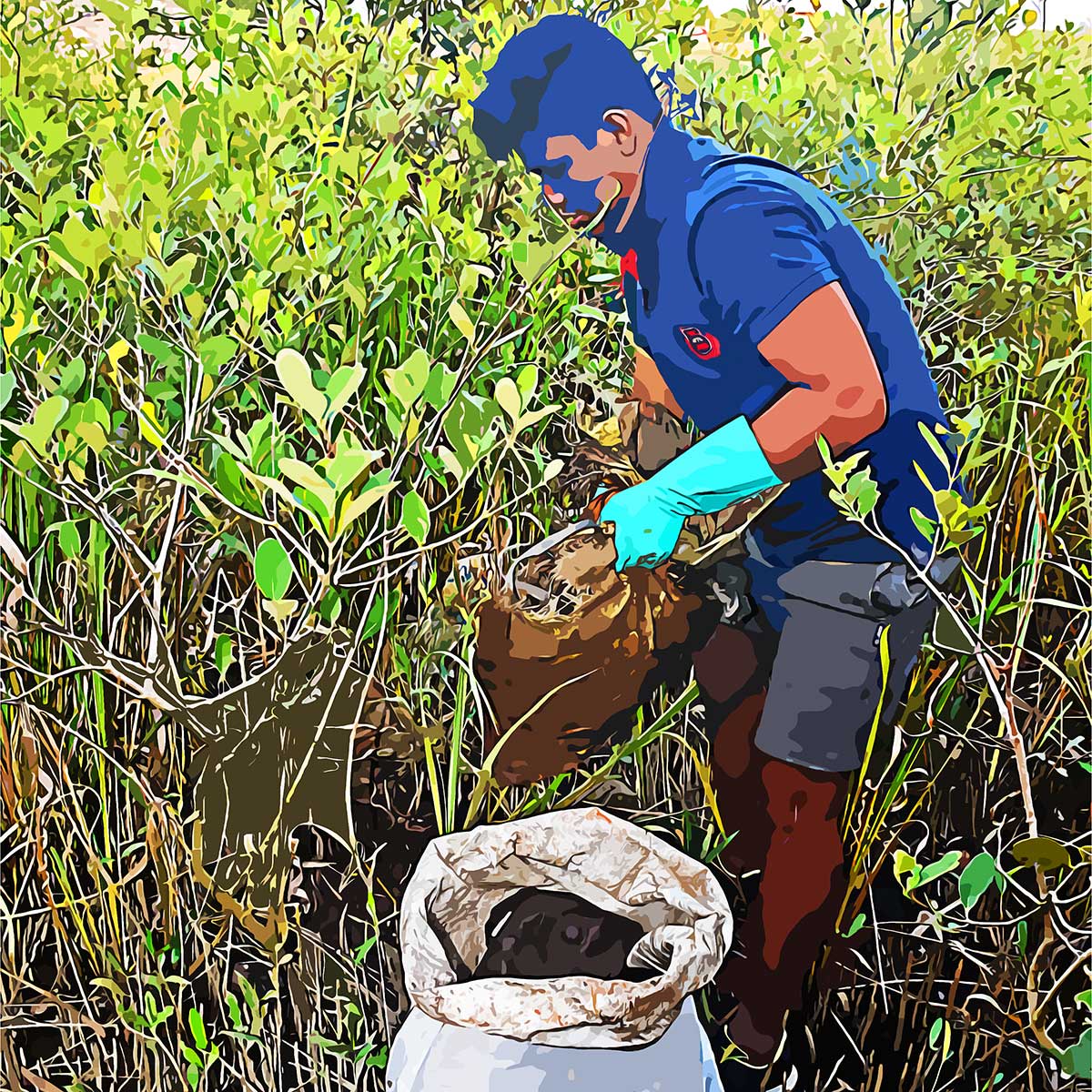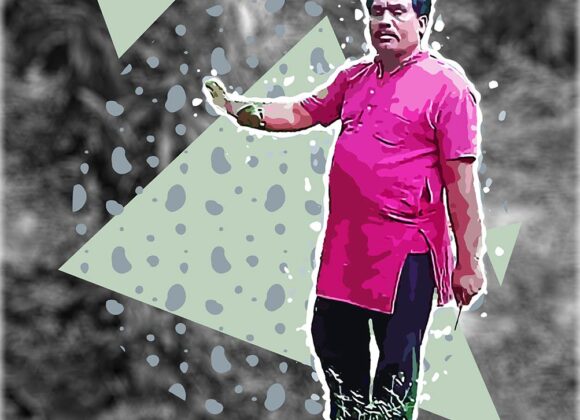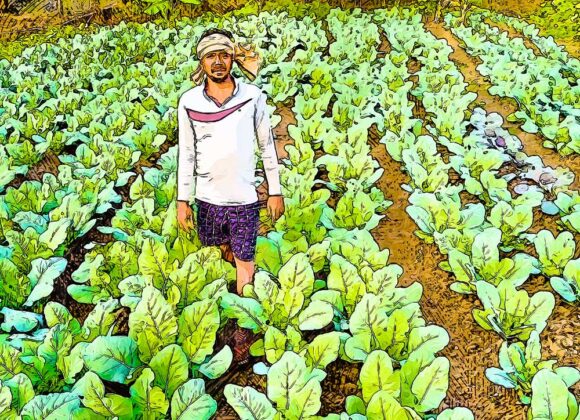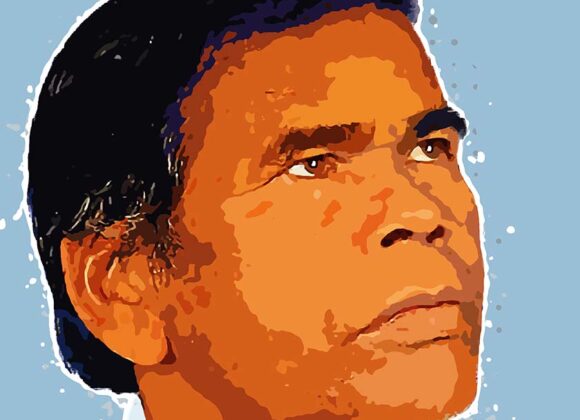A Chinese philosopher Lao Tzu once said, “A journey of a thousand steps must begin with the first step.”
Corollary to the phrase, a 22-year-old boy became the torchbearer of a plastic-free marine stretch in Odisha. In 4 years, Rahul Maharana has collected more than 500 bags of toxic waste from the bank of River Devi and Kadua near Astaranga in the Puri district. Besides, he single-handedly disposed of over 1-ton garbage from the Hental Mangrove vegetation in the nearby area of River Devi in just 8 weekends.
The financial crunch of the family forced him to earn at a tender age. Despite working as a security guard in a private organization, Rahul sets off to Devi estuary near Astaranga every weekend. All day long, he collects all sorts of solid scraps including rags, plastics and other non-biodegradable components with his bag and gloves on. Rahul hails from Ambadiha village under Balipatna block that is 30kms away from the capital city. Since childhood, he has had a soft corner towards social work and environmental protection activities. His father Kishore Maharanahas always been supportive of this endeavour.
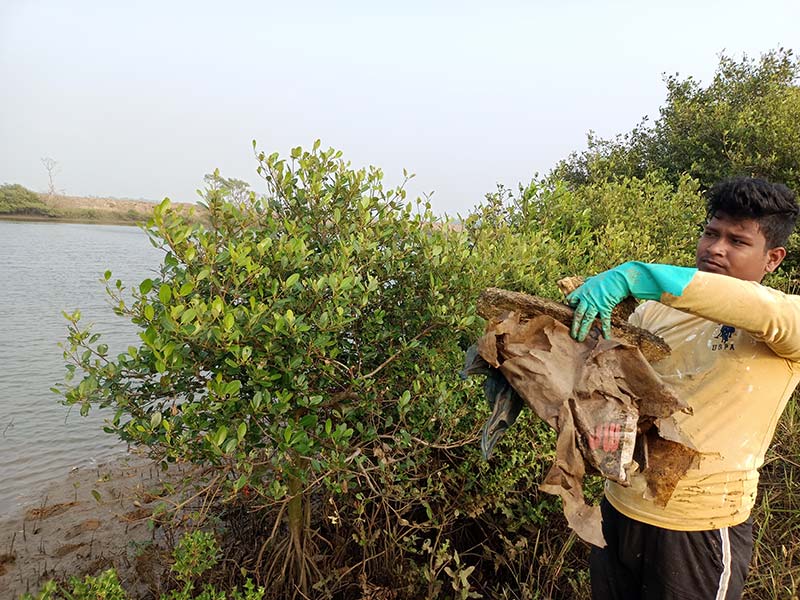
But it’s relatively interesting to know, how did Rahul strike with an idea of cleaning up the beach? While pursuing hishigher secondary education in 2018, the awareness programmes on beach cleaning drive in Nimapada (Auto) college molded his interest to work against plastic pollution. Furthermore, the wastes littered in the Astaranga beach and nearby areas always bothered him.
“One day, I motivated my friends to start a campaign for plastic cleanup in our village. We collected garbage and spread awareness among local people and shopkeepers regarding the negative effects of plastic wastes. Gradually my friends started to lose interest and few left under family influence. But I continued with the cleanup work individually in my free time. Since then, I have undertaken beach cleaning activities on more than 60 occasions.”
Rahul was greatly influenced by Soumya Ranjan Biswal who works towards wildlife and turtle protection. He followed Soumya and learnt about the deadly effects of plastics on marine biodiversity, especially on Mangroves and endangered Olive Ridley turtles during their nesting season. Apart from that, he experienced high mortality of turtles alongside Devi estuary during the cleanup drive. Thus, he decided to stay in the proximity of the estuary for two months and look after the turtles. He worked hard to reduce the plastic deposits at the mass nesting grounds. He also helped the wildlife watchers to protect the eggs from any possible dangers and secured turtle eggs by shifting them to the artificial hatcheries of the Puri wildlife division in 2021.
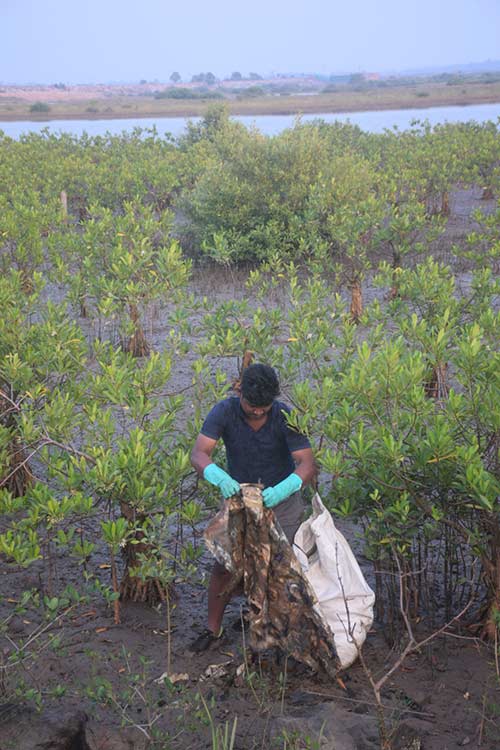
As Rahul claims, the people residing on the river bank dispose wastes in the river. The waste washed down to the riverside further fuels the tangible shrinkage of habitat as well as the population of mangroves lying in the Devi estuary. The lack of knowledge on saving the Hental mangroves irrespective of their excessive importance motivated him to initiate a cleanup drive on 9th January, 2022.
“I decided to come here at least once a week and clean the Mangrove site. So far, I have cleared around 1,100kgs from the Hental stretch in just 8 eight weeks. Unlike past, now I dispose the wastes with the help of Konark Plastic Waste Management Corporation. Here, my drive will continue till the end of all garbage. On completion, I will surely extend it to other parts of the state. However, I urge everyone to use dustbins and never dispose wastes in the water bodies.”
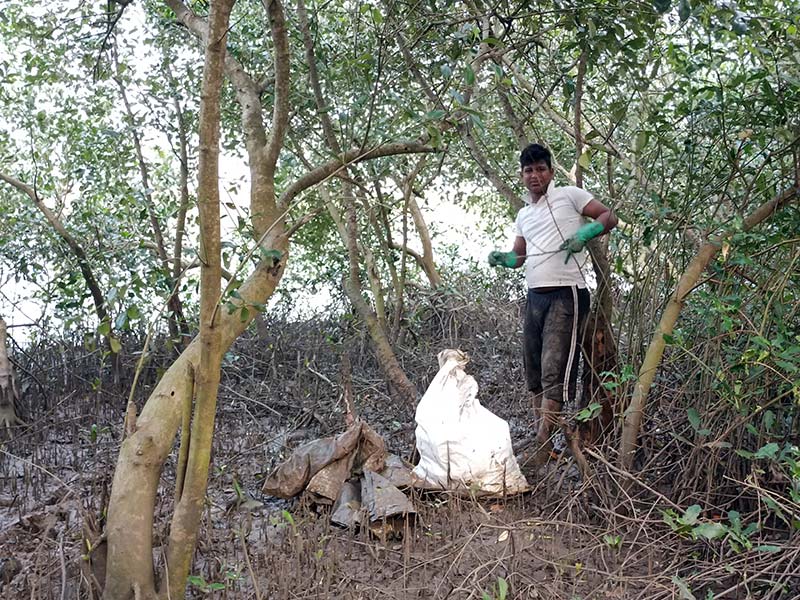
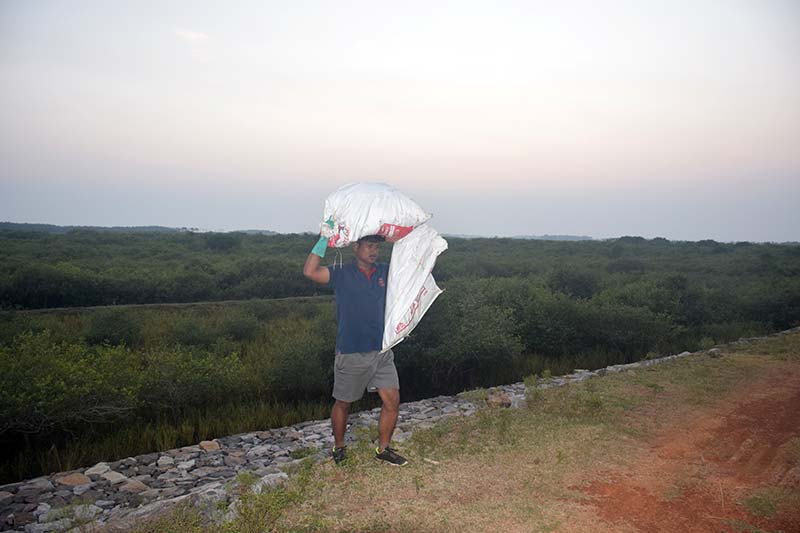
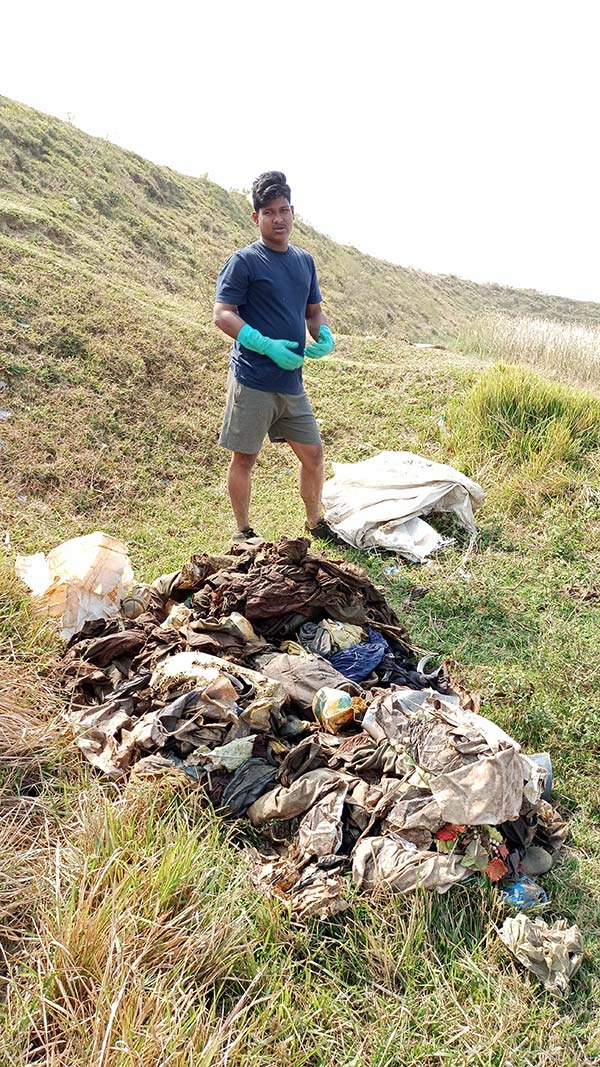
Solid Waste Management is the prime menace the world is facing today. Rahul single-handedly achieved a significant milestone at an age when other youngsters don’t realize their civic responsibilities. The environmentalists around the globe often seek utmost support from the people as the quantity of waste in the riverine is too vast. Hence, Rahul is also seeking support through social media handles and planning to launch awareness camps at the village level and sensitize people over the perils of pollution and the importance of protecting mangroves. But, it is upon us how long we would take to get responsive against the perpetuating pollution we have created and its gruesome impact on everything? Undoubtedly, it is a collective responsibility to protect our beaches before it slips out of our control.

